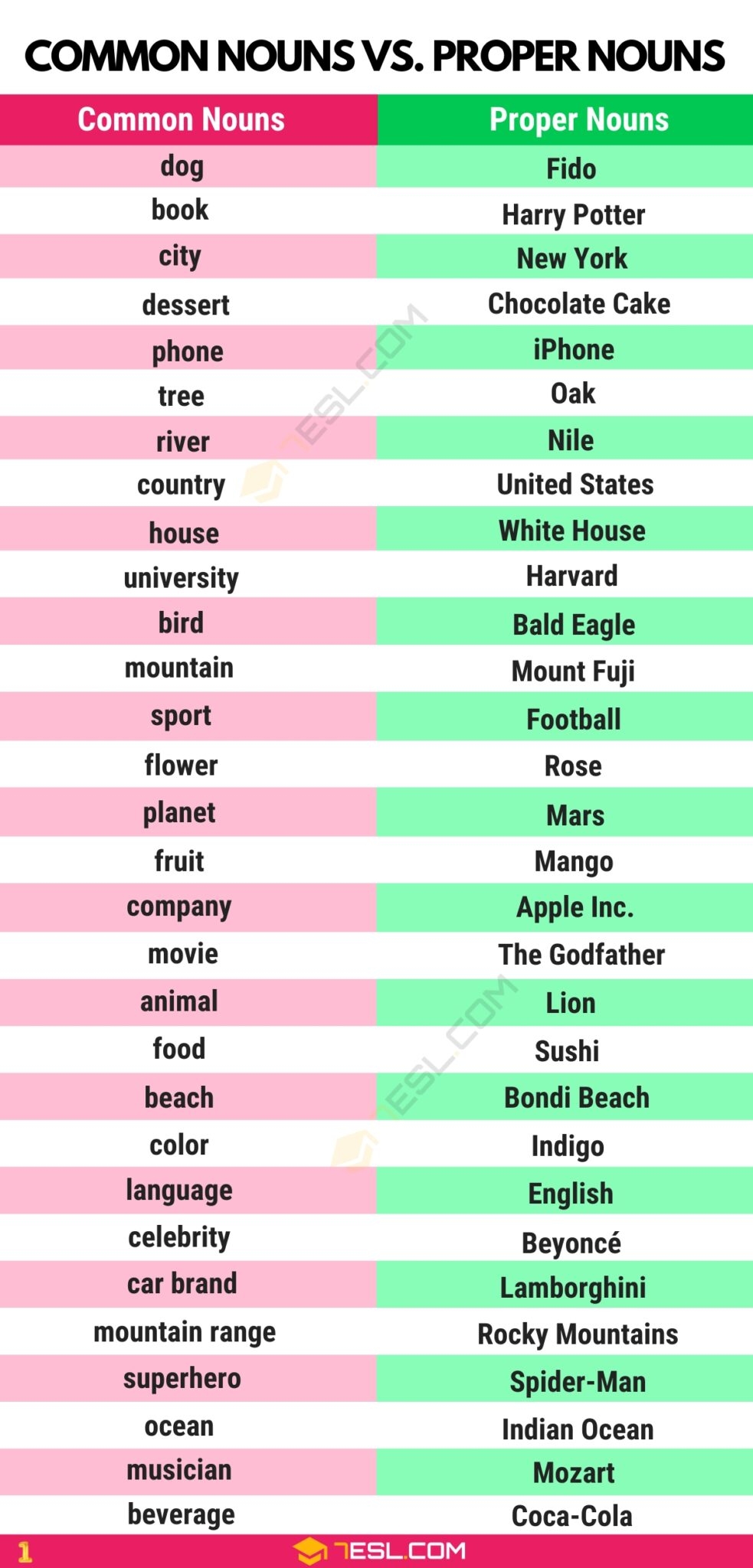Proper nouns and common nouns are two different types of nouns that are used in the English language. Understanding the difference between them is essential for clear and effective communication. Proper nouns refer to specific names of people, places, or things, while common nouns refer to general names of people, places, or things.
Proper nouns are always capitalized, regardless of where they appear in a sentence. This helps to distinguish them from common nouns and gives them a sense of importance. Proper nouns are used to identify a particular person, place, or thing, such as names of individuals (e.g. John Smith), names of cities (e.g. New York City), and names of companies (e.g. Apple Inc).
Proper Noun vs Common
Common nouns, on the other hand, are not capitalized unless they appear at the beginning of a sentence. They are used to refer to general names of people, places, or things, such as names of animals (e.g. dog), names of objects (e.g. table), and names of concepts (e.g. love). Common nouns are used more frequently in everyday language and are essential for forming sentences.
It is important to use proper nouns correctly in writing to ensure clarity and accuracy. When using proper nouns, it is crucial to capitalize them and provide specific details to avoid confusion. Common nouns, on the other hand, are used to refer to general ideas and do not require capitalization unless they appear at the beginning of a sentence.
Proper nouns are unique and specific, while common nouns are general and can be used to refer to a wide range of things. By understanding the difference between proper nouns and common nouns, writers can improve the quality of their writing and make their communication more effective.
In conclusion, proper nouns and common nouns play different roles in the English language. Proper nouns are specific names of people, places, or things that are always capitalized, while common nouns refer to general names of people, places, or things. By using proper nouns correctly and capitalizing them when necessary, writers can ensure clarity and accuracy in their writing.
